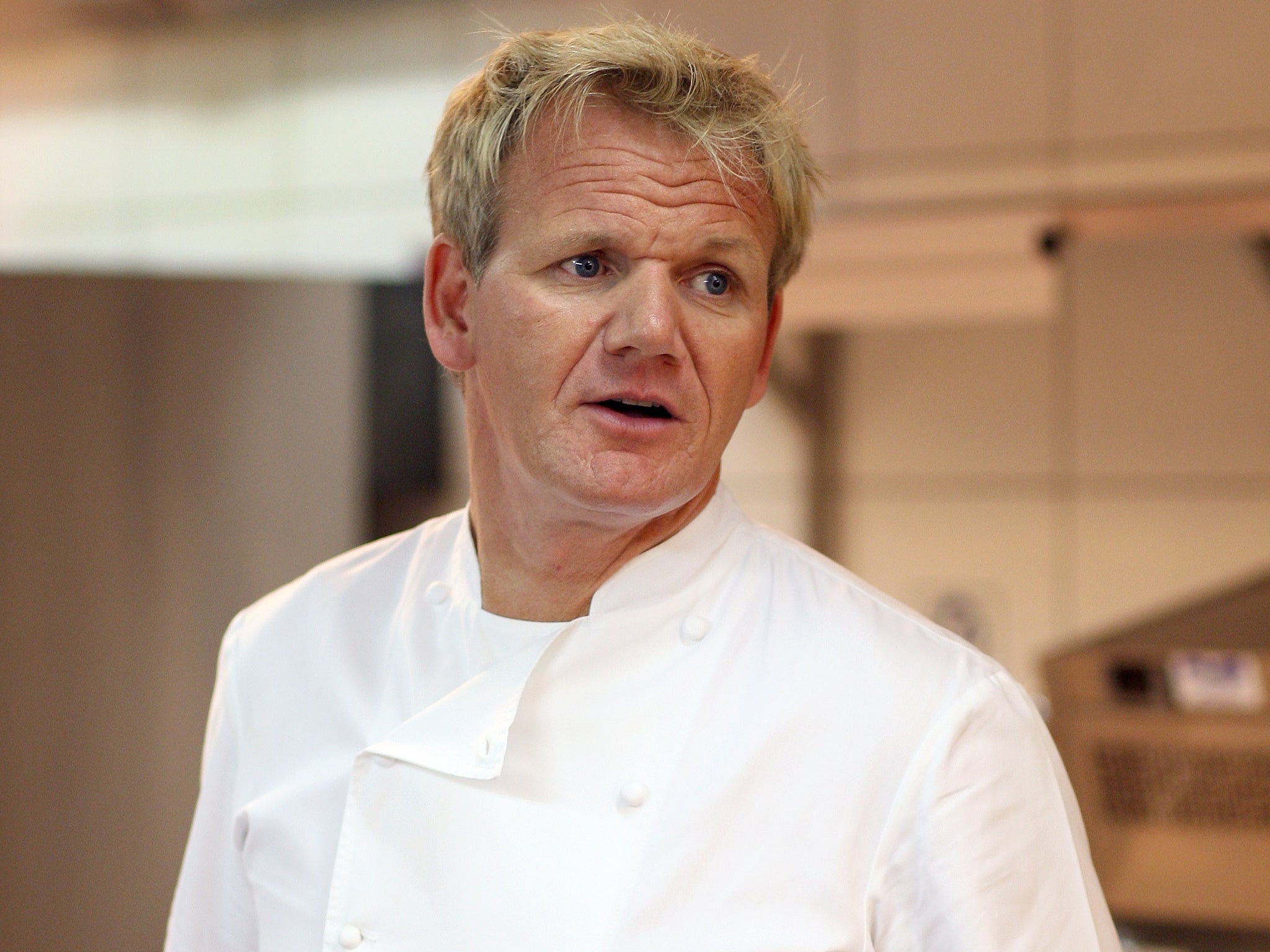'Gordon Ramsey effect' blamed for decline in number of female chefs
Exclusive: Analysis of government figures reveals macho kitchen culture and unforgiving hours deter women from top jobs

The “Gordon Ramsay effect” of a macho kitchen culture and balancing unsociable hours while having children have been blamed for a decline in the number of female chefs, as revealed by an analysis of government figures by The Independent.
Despite the rise of female role models such as the Great British Bake Off’s Mary Berry, and Hélène Darroze, whose restaurant at the Connaught Hotel in London has two Michelin stars, the number of women working as chefs or cooks has been in decline from the start of this century.
In 2001, there were 126,000 – representing 48 per cent of the workforce. But by 2010 the number had fallen to 107,000 – with the proportion down to 37 per cent. Today, while women hold around three-quarters of jobs as cooks, they account for fewer than one in five chefs – 46,000.
A growing number of figures from the world of food are now demanding action to encourage more women to pursue culinary careers.
In a thinly veiled attack on macho culture exemplified by chefs such as Gordon Ramsay, Swiss chef Anton Mosimann said: “Television has played a great part in persuading many to take up a profession in the kitchen, but equally many who are enthusiastic about food might be put off by the perception that all kitchens are stressful environments with foul language and abusive behaviour; a practice that I abhor and have never permitted in any kitchen where I have worked.”
He added: “There are some female chef role models, but they do not tend to attract the attention of the media in the same way as the more vocal male chefs have done.” A spokesperson for Mr Ramsay did not respond to a request for comment.
Some female chefs admit that they have had to choose between having children and a career. Sarah Barber, executive pastry chef at Hotel Café Royal in London, said: “I knew since the beginning that this was a job which, in the best cases, would occupy my day for a minimum of 12 to 14 hours: in these conditions, having a family and raising a child would not only have been a challenge, but very much impossible.
“Giving up family and kids for my career is a sacrifice which I happily made, but still it is a sacrifice.”
In recent years women have become top chef at some of Britain’s best-known restaurants. Last year Kim Woodward became the first ever female head chef at the Savoy Grill in London.
Ms Darroze has been awarded two Michelin stars for her eponymous restaurant at The Connaught hotel in London, while Spanish chef Nieves Barragan Mohacho heads up Barrafina in London, which was named Britain’s best restaurant at last year’s National Restaurant Awards. And Clare Smyth, the first female chef in Britain to be awarded and retain three Michelin stars, is chef patron at Restaurant Gordon Ramsay in London.
But a wider problem remains, according to Lyndy Redding, managing director at catering and events company Absolute Taste. “Women chefs are not seen as long-standing chefs in the business because people don’t think that they will last but instead go off and have families,” she said.
“We need to champion female chefs that are not just restaurant chefs. Running or owning a restaurant is hard for a male or female chef, but there are many female chefs out there who are not running a restaurant but they can still be a great role model to encourage females to come into the kitchen.”
Mark Linehan, managing director of the Sustainable Restaurant Association, said: “The long anti-social hours and perceptions of a predominantly macho and hierarchical working culture can act as a disincentive for many women to forge a long career.”
And Emily Watkins, chef proprietor of Kingham Plough in Chipping Norton, Oxfordshire, said: “Since taking this place over nine years ago, I have had less than 10 female CVs for chef positions against hundreds of males. Considering how much of a boost the career of a chef has had thanks to the TV, etc, I am surprised that it hasn’t made the industry more open. Having said that, the majority of professional chefs on the TV are male.”
Some restaurants, such as the River Café in London, deliberately aim for a balance of men and women. Ruth Rogers, chef and co-founder of the River Café, said: “We have a very strong policy that if we have too many of one gender, whichever it is, when we have applications we look for the other one because we really like having a balance in the kitchen.”
But Angela Hartnett, chef patron of Murano restaurant in London, said: “It’s a mistake to start thinking in quotas when your ultimate aim should be to run a great restaurant and cook delicious food.
“There are plenty of female chefs out there, but for whatever the reasons – the hours, work-life balance, etc – the industry has tended to be male-dominated. Instead of trying to redress the balance, we should be looking to support talent and hard work, whatever shape it comes in.”
And Jemima Olchawski, head of policy, the Fawcett Society, commented: “This fiercely competitive industry is missing out on talent right now. But simple changes could really make a difference. Those running kitchens should think hard about whether they could organise work more flexibly, for instance with job shares.”
Subscribe to Independent Premium to bookmark this article
Want to bookmark your favourite articles and stories to read or reference later? Start your Independent Premium subscription today.

Join our commenting forum
Join thought-provoking conversations, follow other Independent readers and see their replies